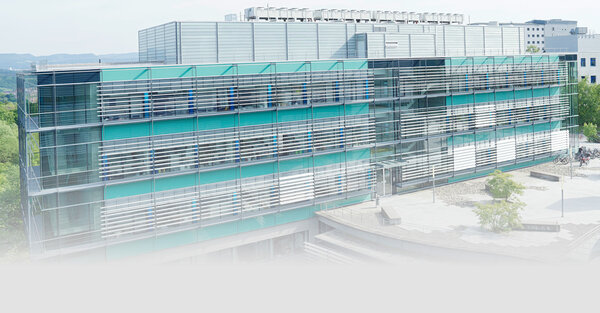
News
-

How can the risk of falling in old age be minimized?
A German-Dutch research team has investigated how age-related changes lead to an increased risk of falling in old age. With the participation of Prof. Daniel Häufle and Dr. Lucas Schreff from the HIH and the University of Bayreuth, computer simulations were used to run through specific scenarios of stepping down from a step with varying muscle strength and nerve signal speed - both factors that decline with age.
-

Evidence for neuroplasticity into advanced age
The human brain ages less than thought and in layers – at least in the area of the cerebral cortex responsible for the sense of touch. Researchers at the DZNE, the University of Magdeburg, and the HIH under the direction of Prof. Esther Kühn come to this conclusion based on brain scans of young and older adults in addition to studies in mice. Their findings have just been published in the journal Nature Neuroscience.
-

Neuroscience Campus Get Together 2025
On July 24, 2025, the popular Neuroscience Campus Get Together, jointly organized by HIH, CIN, and DZNE, took place once again.
One highlight was the presentation of the “HIH Paper of the Year Award” to Dr. Antonino Greco from Prof. Markus Siegel's “Neuronal Dynamics and Magnetoencephalography” department for his publication “Predictive learning shapes the representational geometry of the human brain” in Nature Communications.
-
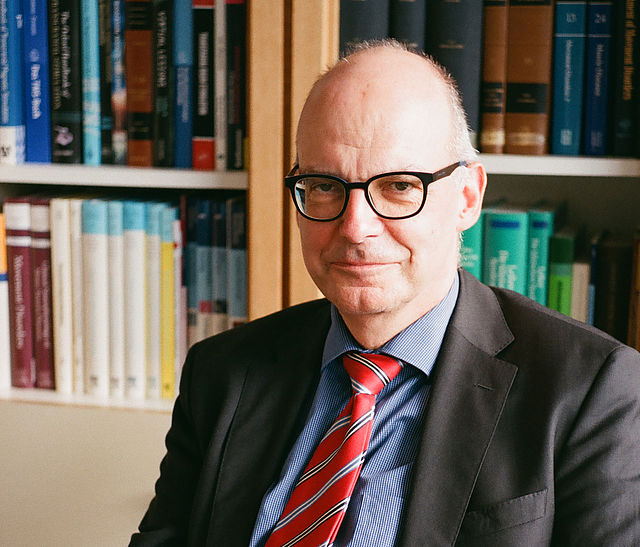
ERC Proof of Concept Grant for Prof. Ulf Ziemann
Congratulations to Prof. Ulf Ziemann, Head of the Department of "Neurology with Neurovascular Medicine" at HIH, on receiving the ERC Proof of Concept Grant for “CLOsing the loOP on non-invasive brain sTiMulation with deep neural networkS” (LOOP-TMS).
-

New Issue of "Perspektiven"
The new newsletter "Perspektiven" from “Forschen.Fördern.Leben” is here!
Read more about current studies, research results and news from the HIH.
-

"DAREA Award 2025" for Anna Wolfram
Congratulations to Anna Wolfram, a joint PhD candidate in Neuroscience at the HIH & the University Hospital Tübingen and in Chemistry at the University of Castilla-La Mancha, Spain, for receiving the "DAREA Award 2025" - the honorary prize of the Darmstadt University of Applied Sciences for commitment to gender equality in the STEM sciences.
-

World Brain Day on July 22
July 22 is World Brain Day - an occasion to raise awareness of a health risk that many people are unaware of: the effect of heat on our brains.
In an interview with the Hertie Foundation, Prof. Dr. Sven Poli, research group leader in the Department of “Neurology with Neurovascular Medicine”, explains why extreme temperatures, and hot summer nights in particular, can increase the risk of stroke.
-

Congratulations on the habilitation
We would like to congratulate PD Dr. Julia Fitzgerald, head of the research group “Mitochondrial Biology of Parkinson's Disease” in the "Department for Neurodegenerative diseases” of Prof. Thomas Gasser, on her successful habilitation!
We wish her every success for her future scientific career!
Departments
-

Neurology and Stroke
The Department of Neurology and Stroke has the main focuses in neurovascular medicine (vessel diseases of the brain, cerebral stroke), neuro-oncology (brain tumors, brain metastases), neuro-immunology (e.g., multiple sclerosis) and neuro-intensive medicine. ...more information
-

Neurodegenerative Diseases
The Department of Neurodegenerative Diseases treats in-patients on a ward of about 20 beds and in several out-patient clinics. The clinical focus lies on neurodegenerative diseases such as Parkinson’s disease, the ataxias, spastic paraplegias, and dementias. ...more information
-

Neurology and Epileptology
The Department of Neurology and Epileptology has a focus on epilepsy and other paroxysmal neurological disorders. In these diseases, the excitability of nerve cells temporarily changes either due to genetic or acquired defects. ...more information
-

Neurology and Interdisciplinary Neuro-Oncology
The Department of Neurology and Interdisciplinary Neuro-oncology (Director: Prof. Ghazaleh Tabatabai) is a department covering both inpatient and outpatient clinical care... More information
-

Neural Dynamics and Magnetoencephalography
The Department of Neural Dynamics and Magnetoencephalography was founded in the year 2020 and Prof. Dr. Markus Siegel was appointed head of the department. ...more information
-

Cellular Neurology
Our research focus is on the cellular and molecular mechanisms of brain aging and age-related neurodegenerative diseases, with a special emphasis on the pathogenesis of Alzheimer´s disease and other cerebral proteopathies ...more information
-
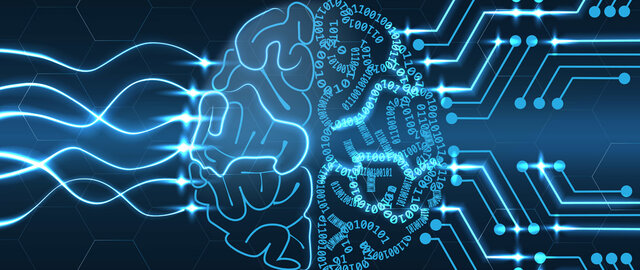
N3: Neurorehabilitation / Neuroprosthetics / Neurotechnology
The department N3: Neurorehabilitation / Neuroprosthetics / Neurotechnology links basic research with technical applications in the field of clinical brain research… more information
-

Independent Research Groups
The independent research groups at the HIH focus on a variety of research topics ...more information
Research groups
-

Helfrich Lab
Human Intracranial Cognitive Neurophysiology
The goal of the Helfrich lab is to unravel the neural network mechanisms supporting higher cognitive functions ...more info
-

Ziemann Lab
Brain Networks and Plasticity
The human brain possesses the remarkable capacity of reorganization, which is the basis for adapting to constantly changing environmental conditions. This plasticity is of paramount importance ...more information
-

Himmelbach Lab
Neuropsychology of Action
The Research Group "Neuropsychology of Action" is dedicated to investigations of human action control. We study clinical impairments of action control and their neural substrates in patients with brain damage ...more information
-

Neher Lab
Experimental Neuroimmunology
An immune response is part of most neurological diseases, and the development of late-onset Alzheimer's Disease (AD) has been linked to immune related genes and most recently also to epigenetic modifications. ...more information
-

Gasser Lab
Genetics of Parkinson's disease
Parkinson's syndrome (PS) is the second most common neurodegenerative disease after Alzheimer's dementia. The vast majority of patients are ill with no apparent cause. ...more information
-

Laske Unit
Dementia Research Unit
The Dementia Research Unit is a clinical research unit of the Department of Cellular Neurology and the Department of Psychiatry. It closely collaborates with the outpatient Memory Clinic. ...more information
-

Ilg Lab
Oculomotor Laboratory
Playing video-games is a widely distributed leisure activity in our society. In order to estimate the consequences of video-game play, we study the details of eye movements and pupil light responses ... more information
-

Jucker Lab
Experimental Neuropathology
Cerebral proteopathy is a unifying term for cerebral neurodegenerative diseases in which aggregated proteins are abnormally deposited in the brain. The hallmark proteopathy is Alzheimer's disease (AD) ...more information
-

Kowarik Lab
Neurological B cell Immunology
The research group “Neurological B cell Immunology” is focused on the role of B cells in neuro-inflammatory diseases including multiple sclerosis (MS) and... more information
-

Hauser Lab
Advanced Cellular Models of Neurodegeneration
The research group focuses on the development of cutting-edge cellular models for the study of monogenetic neurodegenerative diseases ...more info
-

Siegel Lab
Neural Dynamics and Magnetoencephalography
The central goal of the laboratory is to investigate how cognition and behavior emerges from dynamic interactions across widely distributed neuronal ensembles... more information
-

Hedrich-Klimosch Lab
Experimental Neurophysiology of Channelopathies
Our research group uses transgenic mouse models to investigate the molecular mechanisms of disease-associated variants in genes encoding neuronal ion channels. ...more information
-
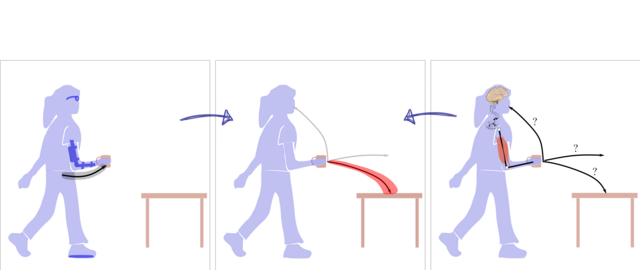
Wochner Lab
Neuromechanical Modeling and Sensor Fusion for Assistive Robotics
This research group is investigating how everyday movements can be predicted in real time using wearable sensor data and neuromechanical computer models. more info
Research groups
-

Kronenberg-Versteeg Lab
Glial Cell Biology
Glial cells are highly abundant in the mammalian brain, yet many questions regarding their development, function, and involvement in disease remain unanswered. ...more information
-

Brockmann Lab
Clinical Parkinson's Disease Research
Parkinson's disease (PD) is the second most frequent neurodegenerative disorder after Alzheimer’s disease and affects about 1 to 2 % of individuals over the age of 65. The number is steadily increasing due to demographic changes in Western countries. ...more information
-

Sevenich Lab
Experimental Neuroonco-Immunology
Research in this lab is focused on tumor immunology in brain cancer in particular brain metastasis ...more information
-

Unit
Käser Unit
Molecular Biomarkers Unit
Processes related to Alzheimer ́s disease (AD) and other age-related neurodegenerative diseases start many years before the onset of the first clinical symptoms. At the moment of the first clinical complaints, the disease has already caused ...more information
-

Gasser Lab
Dystonia
Dystonia is the third most common movement disorder, and mutations in a growing number of genes have been identified as causes for hereditary forms in many cases. The aim of the group, which brings together clinical experience ...more information
-

Poli Lab
Stroke and Neuroprotection
The research focus of our Stroke and Neuroprotection Laboratory is to find new and to optimize existing neuroprotective strategies ...more information
-

Lerche Lab
Experimental Epileptology
Our research group is interested to unravel the mechanisms of well defined, mainly genetic, neurological, paroxysmal diseases, to understand correlations with clinical symptoms and to find new treatment options. ...more information
-

Hafed Lab
Active Perception Lab
Humans are tremendously reliant on the sense of vision to interact with their environment. Such interaction often involves the generation of motor outputs ...more information
-

Fitzgerald Lab
Mitochondrial Biology of Parkinson’s Disease
Neurodegenerative disorders are associated in a proportion of cases with genetic risk and gene mutations. However, the vast majority …more info
-

Grimm Lab
Neuromuscular Imaging Group
The group works on different projects concerning nerve imaging, particularly high-resolution ultrasound in neuromuscular disorders ...more information
-

Tabatabai Lab
Laboratory for Clinical and Experimental Neuro-Oncology
The Interdisciplinary Division of Neuro-Oncology at the Hertie-Institut for Clinical Brain Research is the result of the, in the context of the Excellent Initiative, newly created W3-Professorship in Neuro-Oncology ... more information
-

Kühn Lab
Translational Imaging of Cortical Microstructure
My Research Group uses translational MR imaging to understand how cortical microstructure links to human brain function in health and disease... more information
Research groups
-

Schöls Lab
Section for Clinical Neurogenetics
Neurogenetic diseases like cerebellar ataxia, hereditary spastic paraplegia and leukodystrophy are rare disorders. ...more information
-

Thier Lab
Cognitive Neurology
The lab addresses a variety of topics that, at first glance, may look disparate. Yet, there is a common denominator ...more information
-

Schüle Lab
Genomic of Rare Movement Disorders
Our group specializes in rare diseases. A disease is called rare, when it affects no more than 5 of 100,000 people. However, in the grand-scheme of things, rare diseases are not quite so rare ...more information
-

Giese Lab
Section for Computational Sensomotorics
The Section for Computational Sensomotorics investigates theoretical principles in the perception and control of motor actions. Research is organized around three main topics ...more information
-

Karnath Lab
Section for Neuropsychology
The Section for Neuropsychology focuses on the investigation of spatial cognition and object recognition in humans. The current issues of our work comprise the action control and sensorimotor coordination ...more information
-

Kahle Lab
Functional Neurogenetics
Age-related neurodegenerative diseases are a severe and increasingly worrisome burden for our aging population. Most of the chronic neurodegenerative diseases ...more information
-

Schwarz Lab
Systems Neurophysiology Lab
The overarching goal of our work is to understand the operating principles of the neocortex, a unique brain structure, which mainly evolved in mammals. There is clear evidence that the neocortex, in the broadest sense, endows the subject with cognitive capabilities. ...more information
-

Weiß Lab
Deep Brain Stimulation
The working group aims to uncover mechanisms of action of deep brain stimulation therapy and to translate the pathophysiological insights into future developments. …more information
-

Häufle Lab
Neuromechanics and Rehabilitation Robotics (NeuRoMech)
The research group „Neuromechanics and Rehabilitation Robotics (NeuRoMech)“ focuses on the generation and control of active biological movements. We develop ...more information
-

Merk Lab
Experimental Pediatric Neuro-Oncology
Brain tumors are the leading cause of cancer-related deaths in infants, children, and adolescents. Our lab is mostly focusing on embryonal brain tumors including ... more information
-
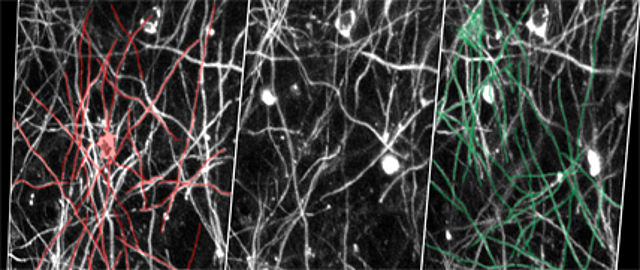
Snaidero Lab
Neuron-Glia Interactions
The goal of the Snaidero lab is to decipher and control cellular interactions between neurons and glia cells in the cortex, focussing on the dynamic processes underlying myelination. ... more information
-

Renovanz Lab
Health Care Research in Neuro-Oncology
The group focuses on the health-related quality of life, psychosocial burden and unmet needs in neuro-oncological patients. Our key question is... more information
-

Synofzik Lab
Translational Genomics of Neurodegenerative Diseases
The translational research of our Research Division is fully geared by a systematic translational pipeline of developing therapy strategies for a broad range of genetically stratified neurodegenerative diseases ...more info
Scientists from all over the world come together to discuss current research issues around rare ion channel diseases and transporter disorders and share latest results.
The meeting is a joint event of the BMBF-funded research network Treat-ION and the DFG-funded research group FOR 2715.
Meeting Chair: Holger Lerche, Ulrike Klimosch-Hedrich and Thomas Wuttke
Location: University Hospital Tübingen, CRONA Klinikum, Large Lecture Hall (Building 420) or online
Address:
Universitätsklinikum Tübingen
Hoppe-Seyler-Str. 372076 Tübingen








